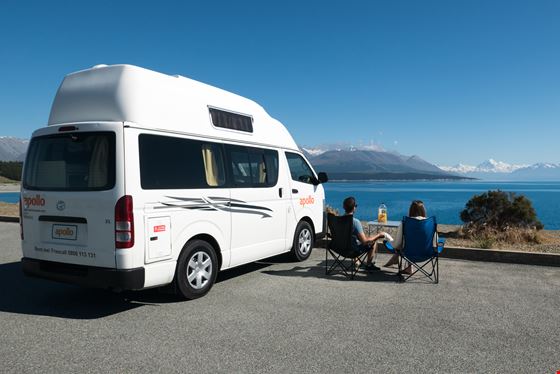5 Reasons to Reconsider Selling a Motorhome on Consignment
- Written by NewsServices.com

A consignment business may seem like a more practical and approachable way to sell your old, unwanted motorhome. Yes, it is—at least in part. But despite the fact that there are certain benefits to shopping at a consignment store, there are also many drawbacks. Don't be kept in the dark, please. Let's first take a closer look at consignment before moving on.
A consignment is a legally binding agreement between two parties wherein commodities, in this case, your RV, are given to a third party for storage. The third party is responsible for reselling the items for the predetermined price within the predetermined time frame. The third party's commission for their services is due once the item has been sold.
Consignment is typically found in establishments that sell apparel, gadgets, cars, and a variety of other goods. Only when carried out correctly and by a reputable seller is consigning an automobile safe and lawful.
As was previously indicated, there are certain drawbacks to selling your motorhome through a consignment shop. In this post, we'll go over five of these drawbacks; I'm sure you'll find them interesting.
Non-Buyers view it
When you park your motorhome in a consignment lot, anyone can access it. This implies that both those who are interested in purchasing it and those who are not have access to it. People who aren't interested in purchasing it could be intrigued about what an motorhome looks like inside, but since they are aware that they won't be buying it, they don't feel obligated to treat your RV with care.
In this situation, they might rip off handles, scratch floors, or do other internal and exterior damage. This won't be the case, though, if you sell your RV to a motorhome dealership or a private party because you'll know that they're committed to buying it and will treat it with care.
Less Money for the Sale
If you sell your motorhome at a consignment lot, you will typically be obliged to give the consignment lot a 10%–15% cut of every dollar you make. This might not seem like much at first. However, the 10%–15% can soon add up to a significant sum of money, when you take into a account how many thousands of dollars the vehicle itself is valued at.
You can’t use your RV while in consignment
Your motorhome remains in their control once you sign a contract with a consignment business for the duration of that contract. They have three months if the agreement is longer to try to sell your RV.
What if something unexpected happens, like a group trip or a job leave of absence? You won't be able to utilise your RV at that time. Even while it might not be a significant concern, selling in the winter might not be the best timing if you want to sell in the summer.
Not Secured
It is possible to keep continual watch over your RV when it is parked at your home, but it can be difficult to do so when it is parked at a consignment lot where there are so many other RVs there at the same time. This implies that someone could steal from your RV covertly at night by breaking into the parking area. Additionally, your RV may sustain damage from vandalism, which would be quite expensive to repair.
Delayed Response
Finally, dealing with an motorhome consignment lot may cause a delay. You can lose out on potential clients if they are not open at least seven days a week to show your automobile. Additionally, if the lot is understaffed, a potential customer who tries to call the consignment service and does not immediately get a response will move on to another motorhome ad.
Conclusion
Although consignment shops can be a great way to sell your motorhome, after reading this article you might want to think again about doing it yourself.



















